Hailey Savage
Hailey opened up a whole new future for herself when she moved 4,000 miles from the rural farmlands of midwest America to London. A student studying architecture with a foundation year, she finds herself surrounded not only by different architectural styles but by a community from all kinds of backgrounds who each bring their own ideas and cultures to the practice of architecture.
I'm from Kansas City – kind of a farm girl, but I wanted to move to a bigger city to practise architecture. There are things that I appreciate from being from a small town – but when I moved here, I realised that the world is much bigger than this small-town mindset. Living in a bigger city, your mind opens quite a bit to the possibilities of what you can do with your life.
I heard about London Met from walking down the street in London – I was just in the area and saw it. I had been wanting to go back to university for a really long time, so I just scheduled a tour and went in and looked at the campus – I loved the studios and the spaces and the people there who I met. I think that made a huge impact on my decision. I looked at a few other universities, but London Met stood out because it felt really comfortable.
Once you finally get that acceptance letter, it’s worth every amount of effort that you put into it. It was in July, where in Kansas City it's extremely hot, and the car air conditioning was broken. I was sat listening to the Cranberries on full blast when I opened it. That letter changed my life.
Being in a different country was a huge experience. But I was really proud of myself. Even when it was a little bit difficult or when I was nervous – like the first day, the first week, it helped to push me to keep going to class. I thought, I've worked so hard to get here. I'm going to sit next to the first person I see. And I did that. And every person on that bench was in the same exact situation that I was in. There was someone from South America, there was someone from Sweden and there was someone from Portugal – I think that's really cool. We all bring our own ideas and our own cultures, and especially with architecture – different architectural styles and people from different regions that have inspired us.
I've really found my teachers to be super helpful. One of my proudest moments is when one of my tutors wrote about me in a magazine, which was quite intense for me. Seeing my name in print was kind of crazy. It was very exciting. When you work hard at London Met, it doesn’t go unnoticed. When you struggle, the lecturers are right there all the same.
I think collaboration is a huge part of the creative process in architecture. A project can go so much further with many minds put together. In a studio environment, you're all together and it just helps to open your mind up to the many possibilities, because there's not just one way of doing things. There's a lot of space for conversation in the classes. Lecturers will really encourage you to speak up about your experience.
London Met has given me a ton of confidence and I didn't really have that before. I think that the teachers and the students constantly push you to be more yourself. One of the biggest differences that I found with lectures is that in the States, you're in a large lecture hall and you see your teachers for a moment during class, and then there's not a lot of connection after that. Here, you have more of an opportunity to build a relationship with your teachers and get to know them.
I spend a lot of time in the library. The third floor is basically all architecture books. I like to go in there and just sit amongst all those books and I take a lot home, but I also read while I'm there.
The greatest thing about my experience at London Met is I that I feel like I'm friends with everyone. I know everyone, I know where they come from and everyone's really friendly. The fact that everyone's from a different place in the world gives us something we can all come together and talk about that.
One of the best things about London is even though it's quite busy everywhere, you can always find these tiny alleyways or quiet parks to sit in. One of my favourites is Artillery Passage – you feel like you've stepped into the 1600s. I spend a lot of time at Victoria Park and around Regents Canal… little caverns of solitude. It’s definitely a good city to study architecture – you have very, very old buildings and very new buildings all crashing together in this really strange way. The University has helped me a lot with finding my own pace in the city.
I love the Barbican. There’s so much going on in that one space – community, public spaces, places to sit with nature, lots of walkways and views of the city kind of beyond it. I’m interested in architecture and public space in London – and how we can make that more inclusive for everyone. Providing a space where people can go to study or sit and have lunch; it's just those little things that help with that inclusivity of spaces.
I used to go to this little CD store in my hometown and I would just pick out a CD based on the cover. I always found myself listening to albums while I was either painting or drawing. There's definitely a rhythm as you move throughout a building too, different thresholds and the way that those places kind of react with light that all create this composition that could almost be likened to a musical piece.
We all remember buildings that we've lived in – for right or wrong, they have a lifelong effect on us. And I think it's important that architects do everything that they can to make that experience better for people.
I've opened a whole new future up for myself, which is kind of amazing. Anyone who does it has a lot to be proud of. Moving that distance and making a change like that, the world feels bigger and smaller at the same time. To me, London Met symbolises change because that's what it did in my life. You can do so much more than you thought you could.

"We all remember buildings that we've lived in – for right or wrong, they have a lifelong effect on us. And I think it's important that architects do everything that they can to make that experience better for people."
Read more about our Architecture (including foundation year) BA








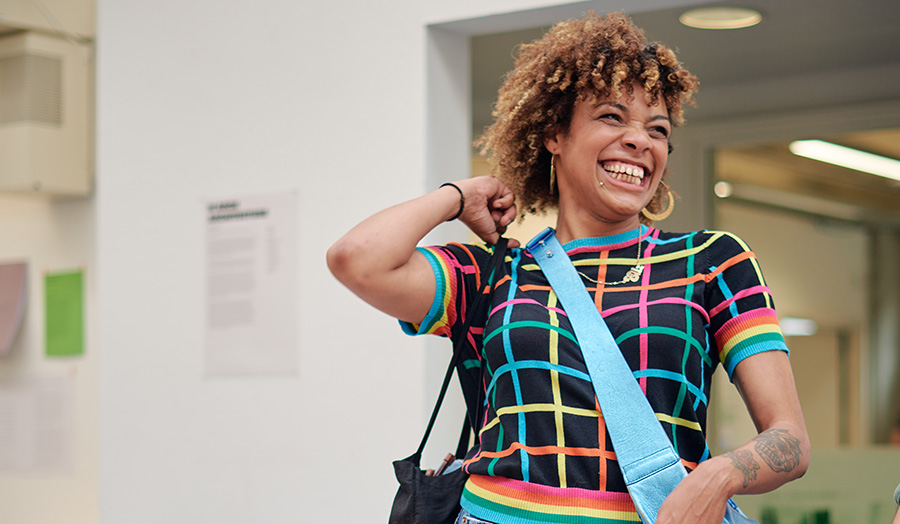
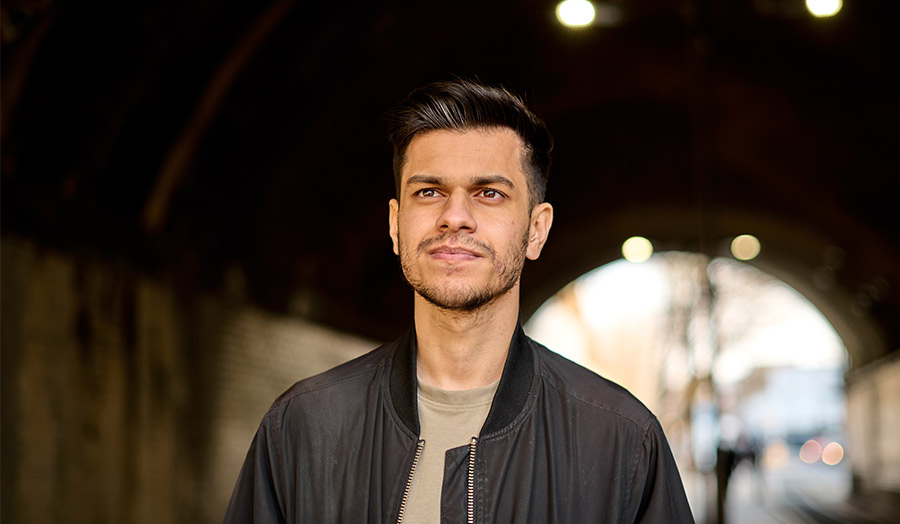
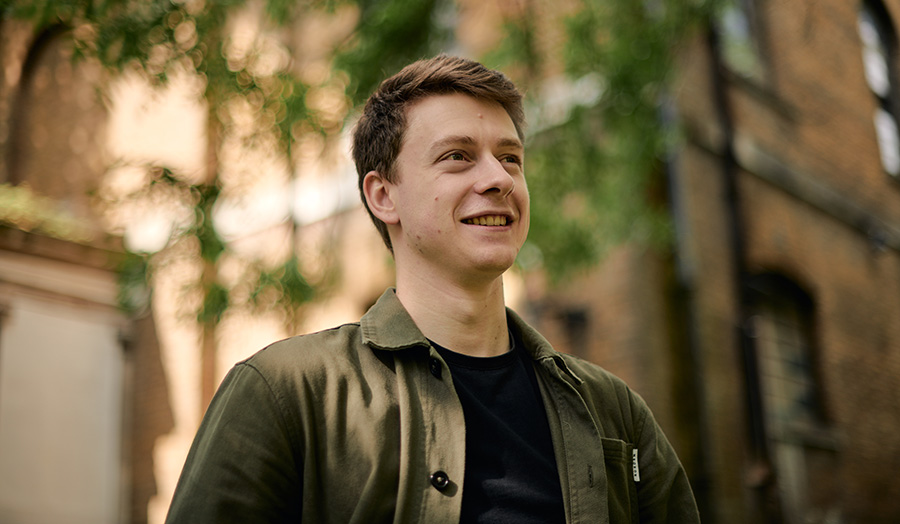
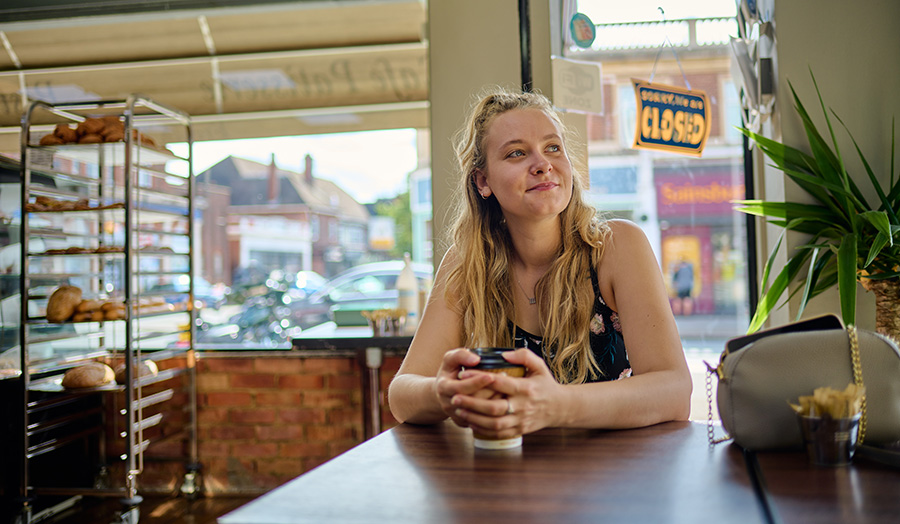
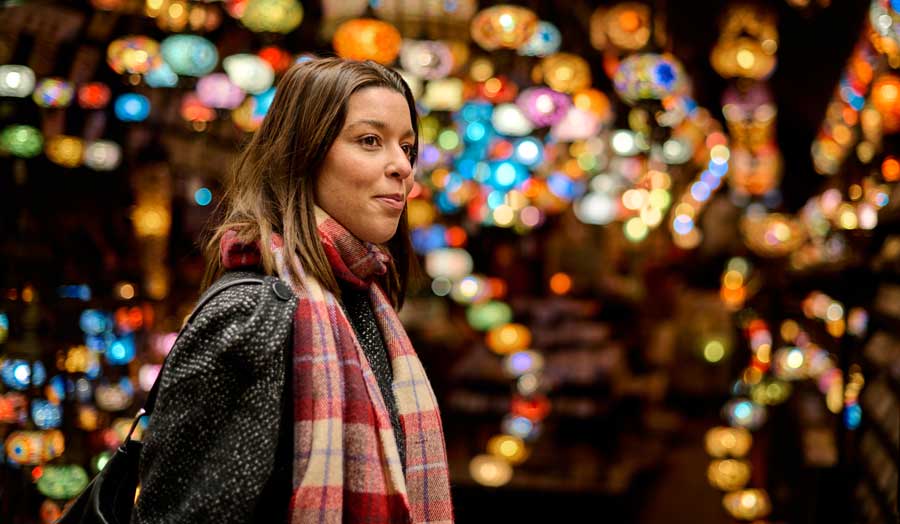



.jpg)
.jpg)



.jpg)

.jpg)